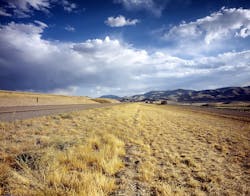EPA Selects 12 Projects to Apply for WIFIA loans
The U.S. Environmental Protection Agency (EPA) invited 12 projects in nine states to apply for Water Infrastructure Finance and Innovation Act (WIFIA) loans. These potential applicants were selected from a group of projects that represent large and small communities from across the U.S. that submitted letters of interest to EPA in April 2017.
In FY2017, the WIFIA program received $25 million in funding, including an additional $8 million in the Consolidated Appropriations Act of 2017 that President Donald J. Trump signed into law May 5, 2017. This year’s projects also will leverage more than $1 billion in private capital and other funding sources including EPA’s State Revolving Fund (SRF) loans, to help finance a total of $5.1 billion in water infrastructure investments. The selected projects demonstrate the broad range of project types that the WIFIA program can finance, including wastewater, drinking water, storm water and water recycling projects.
“Rebuilding America’s infrastructure is a critical pillar of the President’s agenda,” said EPA Administrator Scott Pruitt. “These large-scale projects will improve water quality for 20 million Americans, especially those communities that need it the most, such as rural and urban communities.”
EPA received 43 letters of interest from both public and private entities in response to the 2017 WIFIA Notice of Funding Availability (NOFA). After a robust, statutorily required review process, the WIFIA Selection Committee chose the following 12 prospective borrowers projects to submit applications for loans:
- Miami-Dade County, Fla. – Ocean Outfall Discharge Reduction and Resiliency Enhancement Project
- San Francisco Public Utilities Commission, Calif. – Southeast Water Pollution Control Plant Biosolids Digester Facilities Project
- Metropolitan St. Louis Sewer District, Mo. – Deer Creek Sanitary Tunnel and Sanitary Relief
- City of Omaha, Neb. – Saddle Creek Combined Sewer Overflow Retention Treatment Basin
- Orange County Water District, Calif. – Groundwater Replenishment System Final Expansion
- City of San Diego, Calif. – Pure Water San Diego
- Indiana Finance Authority, Ind. – Indiana Finance Authority FY 2017
- King County, Wash. – Georgetown Wet Weather Treatment Station
- Baltimore City Department of Public Works, Md. – Comprehensive Infrastructure Repair, Rehabilitation and Replacement Program
- Maine Water Company, Maine – Saco River Water Treatment Facility. (Private)
- City of Morro Bay, Calif. – Water Reclamation Facility Project. (Small Community)
- City of Oak Ridge, Tenn. – Water Treatment Plant Design and Construction.
The Water Infrastructure Finance and Innovation Act established by Congress in 2014 requires EPA to follow a selection framework that includes an assessment of letters of interest by performing an eligibility screening, a preliminary creditworthiness assessment, and an evaluation of the selection criteria. The WIFIA program selection criteria and respective weights are available in the WIFIA Handbook (Appendix C, page 53).
Established by the Water Infrastructure Finance and Innovation Act of 2014, the WIFIA program is a new federal loan and guarantee program at EPA that aims to accelerate investment in our nation’s water infrastructure by providing long-term, low-cost supplemental credit assistance for regionally and nationally significant projects. The WIFIA program’s funding in Trump’s FY18 budget is $20 million, an amount that should fund approximately $1 billion in loans.
